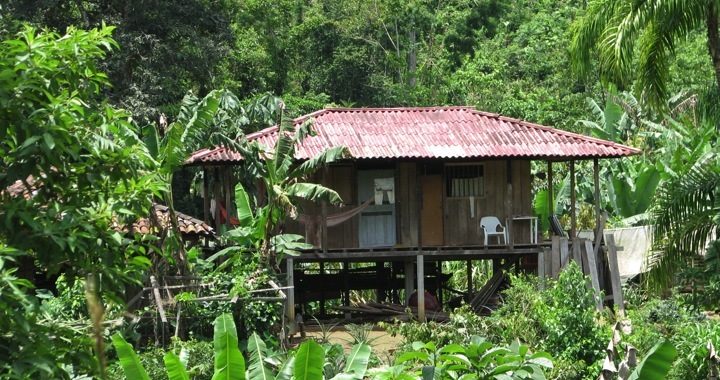Congratulations to Science & Justice Professor Kristina Lyons!
Lyons, Assistant Professor of Feminist Science Studies at the University of California, Santa Cruz was awarded the 2016 AES Junior Scholar award for the article “Decomposition as Life Politics: Soils, Selva, and Small Farmers under the Gun of the U.S.- Colombia War on Drugs” is published in Cultural Anthropology (Volume 31, Number 1: 55-80) and accompanied in an interview.
The award is given annually to early-career scholars for an exemplary article in the area of environmental anthropology.
Abstract: How is life in a criminalized ecology in the Andean-Amazonian foothills of south- western Colombia? In what way does antinarcotics policy that aims to eradicate la mata que mata (the plant that kills) pursue peace through poison? Relatedly, how do people keep on cultivating a garden, caring for forest, or growing food when at any moment a crop-duster plane may pass overhead, indiscriminately spraying herbicides over entire landscapes? Since 2000, the U.S.–Colombian War on Drugs has relied on the militarized aerial fumigation of coca plants, coupled with alternative development interventions that aim to forcibly eradicate illicit livelihoods. Through ethnographic engagement with small farmers in the frontier department of Putumayo, the gateway to the country’s Amazon and a region that has been the focus of counternarcotic operations, this article explores the different possibilities and foreclosures for life and death that emerge in a tropical forest ecology under military duress. By following farmers, their material practices, and their life philosophies, I trace the ways in which human-soil relations come to potentiate forms of resistance to the violence and criminalization produced by militarized, growth-oriented development. Rather than productivity—one of the central elements of modern capitalist growth— the regenerative capacity of these ecologies relies on organic decay, impermanence, decomposition, and even fragility that complicates modernist bifurcations of living and dying, allowing, I argue, for ecological imaginaries and life processes that do not rely on productivity or growth to strive into existence.
(Image note: A small farm in the Andean-Amazonian foothills of Colombia. Photo by Kristina Lyons.)

